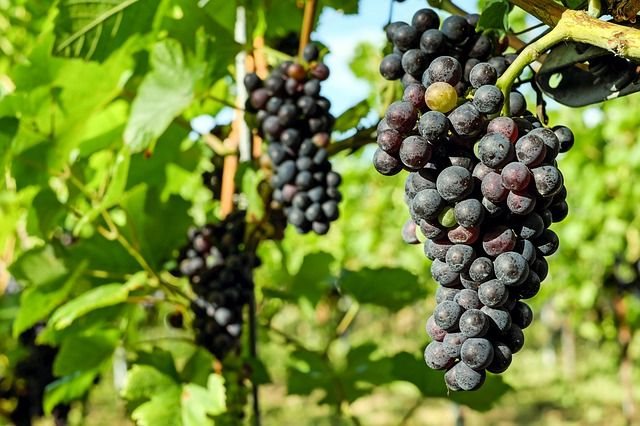According to speakers at the latest monthly broadcast by the Produce Marketing Association (PMA) Southern Africa in partnership with Beanstalk Global, the South African table grape industry has been growing for some time, and that trend is expected to continue.
Clayton Swart, manager communications and market development at the South African Table Grape Industry (Sati), said despite a challenging 2020/2021 season, Sati estimates that 70 million cartons (4.5kg) might be reached for the first time in its history.
He explained that the geographic diversity of South Africa has the advantage that good harvesting conditions in one region could compensate for losses in another region.
There are five major table grape growing regions in South Africa. The difference in soil and climate enables growers to supply the international market from November to May. Swart added that the bulk of South Africa's grape exports go to markets in Europe and the United Kingdom while Asian markets are earmarked for growth.
Changing table grape industry perspectives
Kandas Cloete, horticultural specialist at the Bureau for Food and Agricultural Policy (BFAP), said that despite volatile exogenous factors such as market prices, exchange rates and weather conditions, BFAP considers table grapes a healthy industry where competent producers will continue to prosper.
There are 271 producers farming on 643 table grape production units, which is indicative of the concentration in the industry, where both capital intensity and risk appetite play a role. The larger producers farm multiple units in different regions as part of their risk mitigation strategy and to prolong the production season in order to meet retail demands.
Heidi de Villiers, commercial manager for table grapes Africa and Middle-East at International Fruit Genetics (IFG), said the area covered under table grapes in South Africa increased from approximately 13,000 hectares ten years ago to over 21,000 hectares today with a particular increase from 2014 to 2018. This includes a significant increase in red seedless varieties from 29% in 2011 to 40% in 2020, while white seedless varieties dropped from 33% to 27% during the same time. This period has seen a massive decrease in seeded varieties from 24% to 3%.
"There was a dramatic increase in patented table grape varieties from 27% in 2014 to 52% in 2020. IFG focuses on two categories, namely core varieties that are sweet neutral flavoured grapes and the novelty group with unique flavours and shapes."
De Villiers believes the novelty group has changed the whole perspective on table grapes. Cotton Candy is one of the varieties that have already proved to be highly successful in world markets. New varieties that will be on the shelves soon include Julep grapes with a spicy flavour, Bebop grapes full of energy and action, and Kokomo grapes that evoke good times on a tropical beach.
Corporate social investment
Charl du Bois, commercial executive for Capespan, addressed corporate social investment in the industry. He said agriculture is a significant contributor to employment in South Africa. Fruit makes up about 38% of the total employment within the sector, with table grapes being the most labour-intensive sector. Given the continuing regional growth, we estimate that the table grape industry adds 3% new jobs every year.
"Planting material for new and seedless table grape varieties are often costly to get hold of and is technically challenging for emerging growers. Sati contributed R3.2m towards buying vines in the 2020 planting season to nine emerging farmers, and a further R2.8m is budgeted for the 2021 planting season. This makes it possible for these farmers to compete with the best genetics that gives them access to programmes," said Du Bois.
The Capespan Blue Hand Foundation is a non-profit organization dedicated to improving the quality of life of the people living and working in farming communities. Over the past 10 years, the foundation implemented a number of sustainable social development projects symbolizing the significance of Capspan’s approach of making a difference in people’s lives.

































